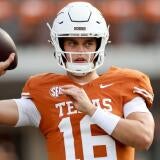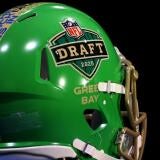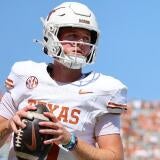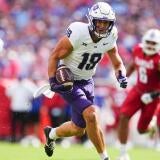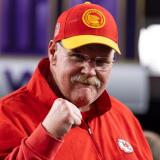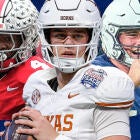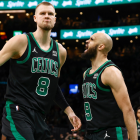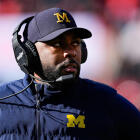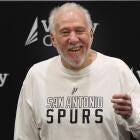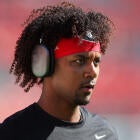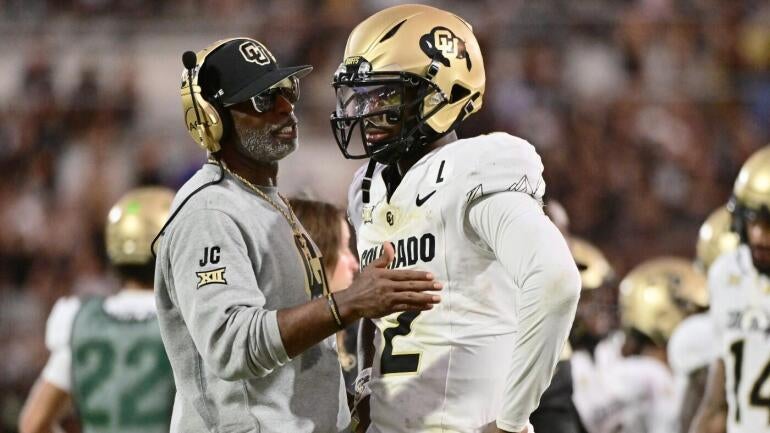
Through two days of the 2025 NFL Draft, seemingly all anyone can talk about is a player who has not yet been drafted. Colorado quarterback Shedeur Sanders, son of Hall of Famer and Colorado head coach Deion Sanders, has slipped all the way to Day 3 and will, by the time he comes off the board, have been drafted behind at least five other quarterbacks. He ultimately landed with the Cleveland Browns with the 144th pick in Round 5.
According to CBS Sports NFL insider Jonathan Jones, the slide is a reflection not of Sanders' play, but his process.
"This is clearly a way for the NFL, and its teams, to let [Shedeur] and anyone else after him know, you can't comport yourself in this way moving forward." - @jjones9 pic.twitter.com/wY2u28CQU1
— NFL on CBS 🏈 (@NFLonCBS) April 26, 2025
"This is a repudiation by the NFL of how Shedeur Sanders and those around him handled the entire NFL Draft process," Jones said. "What you're not going to tell me -- or really anyone who watches football -- is that Shedeur Sanders is a worse quarterback than Dillon Gabriel, who was selected in the third round of the 2025 NFL Draft.
"Look, I didn't think that Shedeur Sanders was going to go in the first round of the NFL Draft. I thought, and in talking with teams, they told me that he was a second-round quarterback. Second round comes around, I start calling around today at the start of the draft, I learn that he's probably not going to go in the top 10 of the second round. Okay, that's fine. At some point in there, in talking with NFL evaluators, they believed that at some point in the second round he would eventually be selected. Then the third round comes. And as we know, of course, he's not selected at all on Friday night."
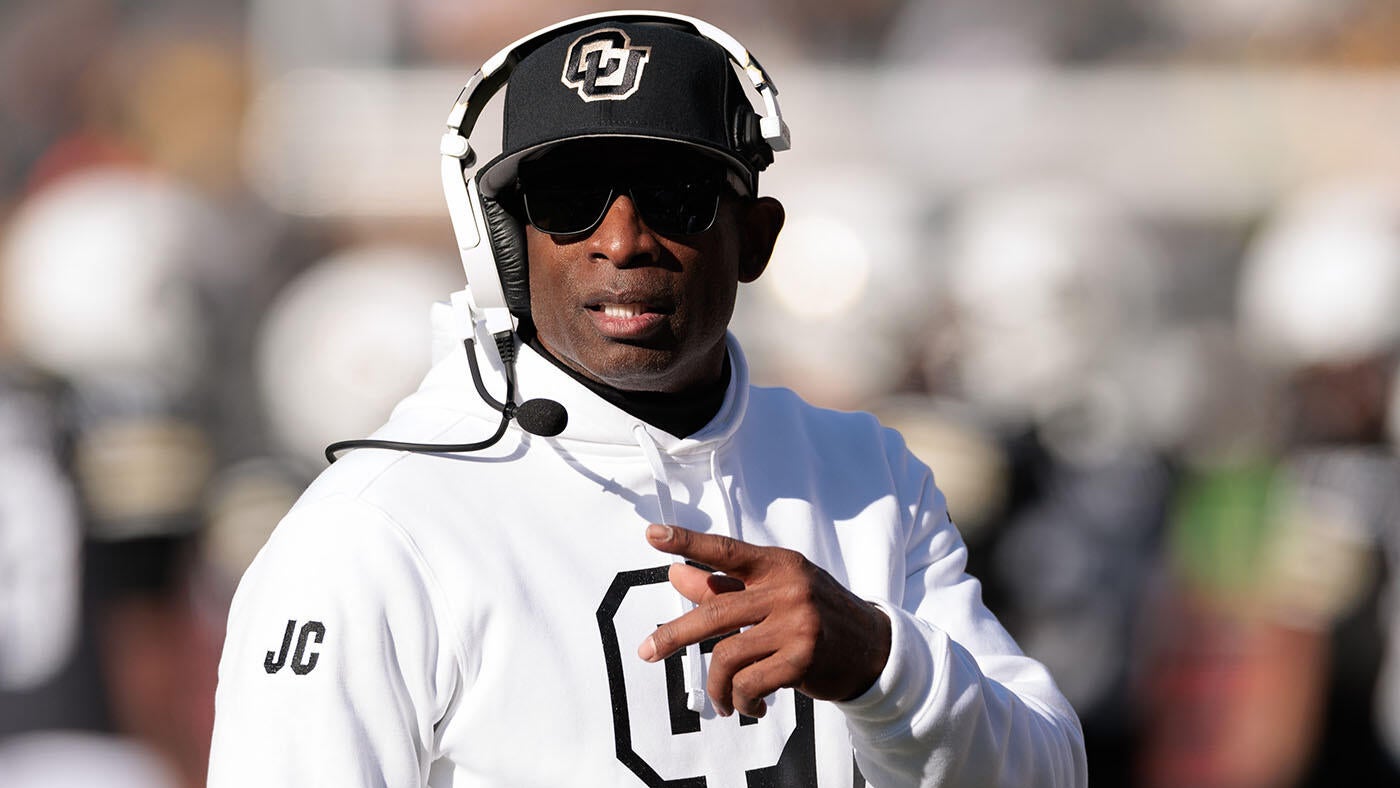
Jones then described in detail a few of the apparent missteps Sanders made along the way, compared with some of the other, less notable quarterbacks who ended up being selected ahead of him.
"Let's go back, even a year ago, when his father, Deion Sanders -- one of the greatest athletes of modern times -- was saying, 'Look, we might pull an Eli [Manning],'" Jones said. "Which, of course, he was referring to how Eli Manning ultimately didn't go to the San Diego Chargers and then engineered, along with his father, a way to go to the New York Giants two decades ago.
"And then his tune changed over the next year. But then what continued to happen? He would tweet after every Las Vegas Raiders loss, 'Thank you God.' And it seemed like the Raiders were destined for the No. 1 overall selection and it seemed like he was trying to engineer his way to the No. 1 pick on a team that was co-owned by Tom Brady. And then, maybe the New York Giants, they're gonna get the No. 1 pick or they're gonna be on top, and so he has New York Giants-colored cleats.
"And then we get to the combine, and now he does not throw -- which is not uncommon for quarterbacks these days. But in some of those meetings -- and we reported this at the NFL Scouting Combine in Indianapolis -- at some of those meetings with certain teams that maybe Sheduer Sanders didn't really want to go to, didn't see himself going to for any number of reasons -- maybe they had a starting quarterback installed there -- I was told that he more or less sand-bagged those interviews. I don't know if he didn't take them seriously, what it was, but he did not give it his all in those interviews and rubbed some teams the wrong way."
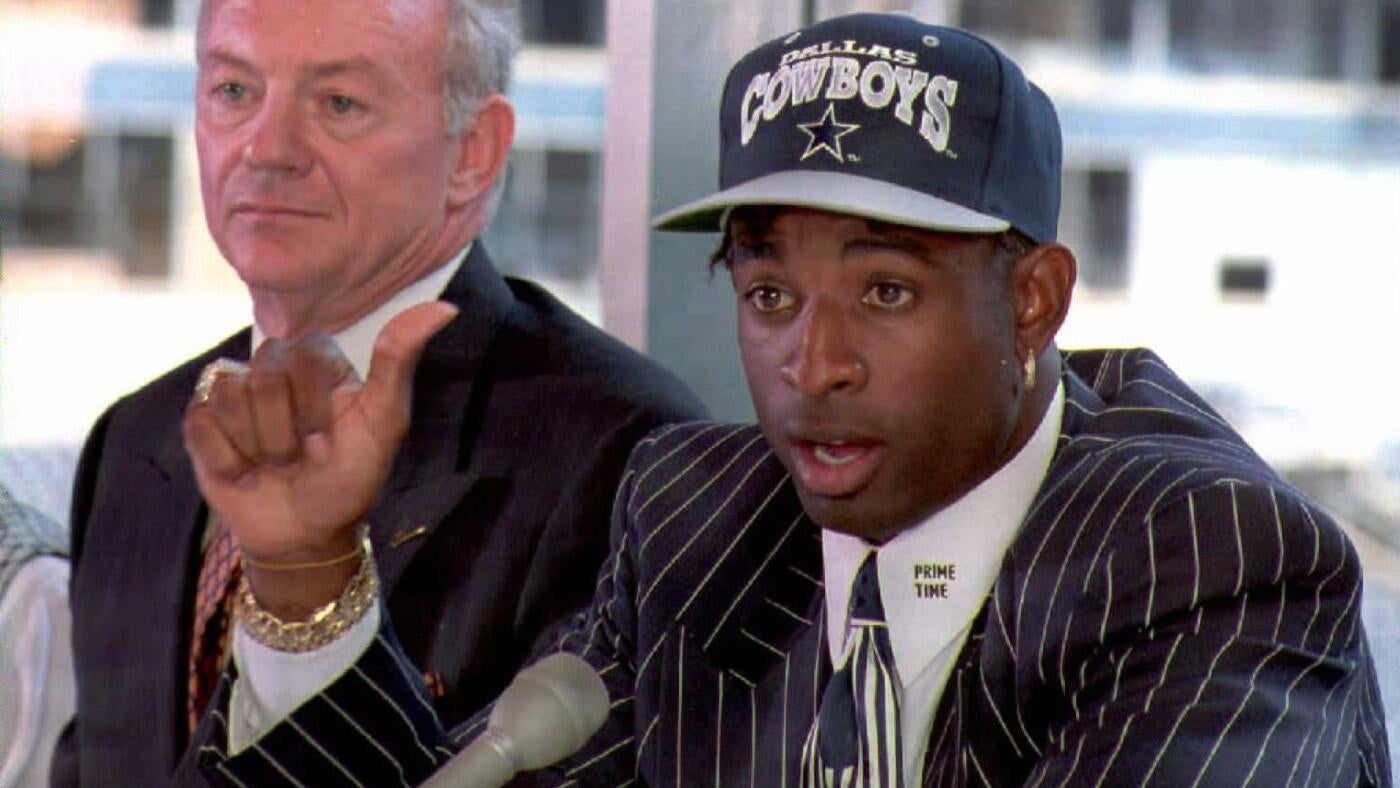
The pre-draft interviews at the combine were a big storyline at the time, reported on by CBS Sports and others. And it's true that those interviews affect draft grades on some level. But they probably don't -- or shouldn't, at least -- affect them enough for a prospect of Sanders' caliber to slip all the way to Day 3, especially when other, less talented players at the same position are coming off the board. And that's why Jones thinks it's about the NFL sending a message not just to Sanders, but to future prospects as well.
"All of these things began to add up for teams," Jones said. "And I'm not saying that that's right that it added up for teams. What I'm saying is that it did, clearly, add up for teams. Because you're not going to tell me that the guy who was on the field the last two years for Colorado wasn't good enough to be selected by the end of the second night -- wasn't good enough to be selected over a Dillon Gabriel, with all due respect to Dillon Gabriel. This is clearly a way for the NFL, and its teams, to let [Shedeur] and anyone else after him know, you can't comport yourself in this way moving forward."
NFL owners and executives, of course, are not above sending messages with their actions. We've seen it in plenty of situations before. And given the gap between talent level and draft capital, it wouldn't be surprising if that were the case here.
![[object Object] Logo](https://sportshub.cbsistatic.com/i/2020/04/22/e9ceb731-8b3f-4c60-98fe-090ab66a2997/screen-shot-2020-04-22-at-11-04-56-am.png)


